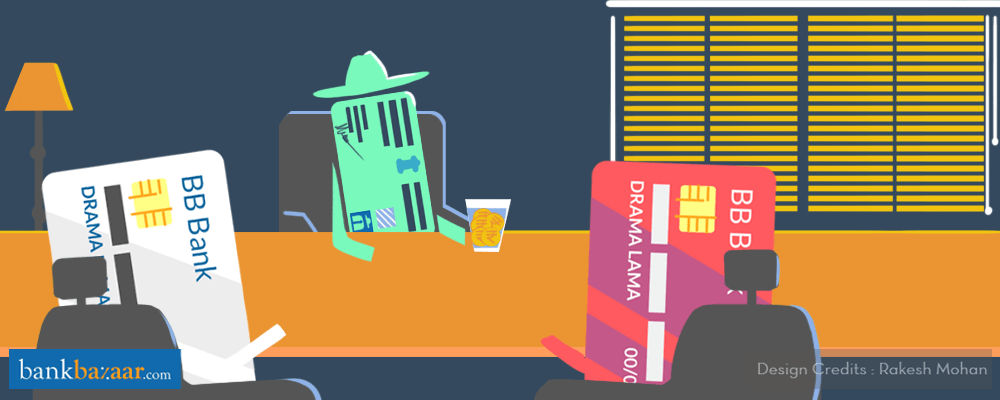
There’s no denying that Debit and Credit Cards are proving to be everyone’s saviour in these cashless times. But, these cards aren’t the only ones you must keep in your wallet.
A Permanent Account Number (PAN) Card is proving to be an equally important card, especially post-demonetisation. Perhaps it’s time to get one if you don’t have one yet. Here are 20 uses of this multi-utility card.
Additional Reading: How To Apply For A PAN Card Online
Let us take you through all the benefits this 10-digit alpha-numeric card has to offer.
- Tax Deduction: Yes! The primary reason to get a PAN card is for tax purposes. If you fail to update your PAN card details in your Savings Bank Account, you will attract Tax Deduction at Source (TDS) at the highest marginal rate. If your annual interest payment exceeds Rs. 10,000 and your PAN details haven’t been updated, then the bank can deduct TDS at the rate of 30%. Whoa!
Additional Reading: Tax Defaulter? Your PAN Could Get Blocked
- House Rent Allowance (HRA) Tax Benefit: For people who pay rent of over Rs. 1 lakh per annum, the landlord’s PAN card must be submitted when availing of the HRA tax benefit. So, if you’re a landlord, you will have to get a PAN card for yourself.
- Business: A PAN card is mandatory when you start a business or profession wherein your annual sales or receipts total exceeds Rs. 5 lakhs.
- Refund From Income Tax (IT) Department: Once you pay your IT dues, you have to file your return. In case you are eligible for a refund, A PAN card is necessary to receive it.
Additional Reading: How To Calculate Your Income Tax
- Buying a Car: A Car Loan isn’t the only thing you need when buying a car. A PAN card needs to be submitted while making your purchase. This rule isn’t applicable for the purchase of two-wheelers.
- Bank Account Opening: Opening a Bank Account without showing your PAN card is impossible. The IT department website states that a PAN card is mandatory to open a Bank Account.
- Investing: PAN card details are required when you invest in Mutual Funds, bonds, and debentures. The Kow Your Customer (KYC) process mandates a photograph, identity and address proof. And your PAN card can be used as an ID Proof.
Additional Reading: How Does E-KYC Work For Mutual Fund Investments?
- Fixed Deposit Account: Opening a Fixed Deposit account over Rs. 50,000, or an aggregate of more than Rs. 5 lakhs in a financial year in a Bank or Post Office, requires you to quote your PAN number.
- Purchasing Foreign Currency: If you’re travelling abroad and need to exchange Indian Rupees for any foreign currency of more than Rs. 50,000, you are required to provide your PAN as per the Income Tax department rules.
- Hotel/Restaurant Bills: If you happen to rake up bills for more than Rs. 50,000 at one sitting and are going to pay in cash, then as per the IT rule 114B you need to quote your PAN details at the hotel/restaurant.
- Dematerialised (Demat) Account: If you invest and trade in the stock market, you need a Demat Account. And you cannot open a Demat Account without a PAN Card.
Additional Reading: Demat Account 101
- Reserve Bank of India (RBI) Bonds: Investing Rs. 50,000 or more in RBI bonds mandates PAN card along with other details.
Additional Reading: Tax Saving Bonds
- Transaction of Securities: Rule 114B states that the sale or purchase of any security other than shares such as scrips, bonds, debentures, or any other marketable securities as listed under the Securities Contracts (Regulation) Act, 1956, over an amount of Rs. 1 lakh per transaction, requires a PAN card as a mandatory document.
- Bank Drafts, Pay Order, and Banker’s Cheque: A PAN Card is necessary if you make payments exceeding Rs. 50,000 in the mode of bank drafts, pay orders, or banker’s cheque.
- Premium Payments: If you’re someone who makes investments to save tax under Section 80 C of the Income Tax Act, and you opt for Equity Linked Savings Scheme (ELSS) or Life Insurance Policies, then providing your PAN details apply as per Rule 114. This is relevant to premium payments over Rs. 50,000 in a financial year.
- Cash Deposits: Carrying Rs. 50,000 or more in cash to deposit in your bank will need you to fill in your PAN card details in the pay-in slip.
Additional Reading: Now Deposit Unaccounted Money In Parts
- Transaction of Unlisted Shares: Any sale or purchase of unlisted company shares exceeding Rs 1 lakh per transaction requires PAN card details to complete the required transaction.
- Immovable Property: If you have been planning to buy or sell any immovable property, such as a house, exceeding Rs. 10 lakhs, you are required to provide your PAN details.
- Sale/Purchase of Goods and Services: Rule 114B states that purchase of goods and services whose value exceeds Rs. 2 lakhs per transaction requires PAN card details to be furnished.
- Investment In Case of a Minor: If you’re a guardian and want to make an investment in the name of a minor, then you need to have a PAN card.
The PAN card is now an important document. However, if you don’t have a PAN card you can make a declaration by submitting a duly filled Form 60 while making transactions that mandatorily require one.
Section 272B of the Income Tax Act deals with penalties related to non-compliance with PAN-related provisions. A penalty of Rs. 10,000 can be slapped on a taxpayer for not obtaining a PAN, or knowingly quoting incorrect PAN details in a prescribed document while filing taxes.
If you already have a PAN card, then you may want to check out our vast array of other cards.